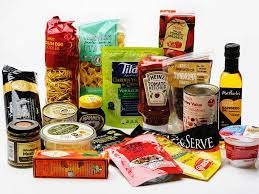ISLAMABAD: Pakistan has a great potential to boost its processed and packaged food industry by optimally utilising its agrarian resources, experts say.
Rising urbanisation with emerging working class and increasing awareness about the importance of nutritious food enhanced the significance of processed and packaged food industry in Pakistan. Following the e-commerce and online trade, a major surge in ready-to-cook South Asian foods has been witnessed largely in the Middle East and UK, but in this sector, Pakistan faces issues in the manufacturing of food grade packaging.
Pakistan’s annual meat exports are restricted to $500 million. However, things in this sector could be improved with value addition of ready-to-cook and processed foodstuff.
Fawad Ahmed, Sales Manager at a meat export company from Lahore, said while talking to WealthPK that Pakistan can boost exports through meat trade with China as it is one of the leading importers of meat.
He said Pakistan only needs to enhance its quality and safety standards to export meat products to China. He said foot and mouth disease (FMD) in cattle is the main reason that has restricted Pakistan’s potential in meat exports.
“The World Organisation for Animal Health (OIE) has barred countries from exports with FMD, but Pakistan can take advantage by establishing FMD-free zones and farms. Pakistan is blessed with the best livestock breeds in the world, but to enhance exports, it needs to raise these cattle as per international standards,” Fawad said.
Dr Anwaar Ahmed, Head of Institute of Food and Nutritional Sciences, PMAS-Arid Agriculture University, Rawalpindi, told WealthPK that being an agricultural country, Pakistan has bright prospects to boost food processing industry and enhance its exports.
He pointed out that Pakistan is the fourth largest country in view of milk production in the world, whereas Pakistan’s share to earn valuable exports from pasteurised milk are very low. He said that out of the total milk produced in the country, only 4% is pasteurised and UHT (ultra-high temperature) treated, and only 1% is used in value-added dairy products.
“Pakistan needs a vibrant food processing industry to enhance the income of farmers through value-added products,” he said.
Dr Anwaar said packaging facility enhances portability and shelf life of food products.
As per findings of the Economic Survey of Pakistan, agriculture sector’s share in Pakistan’s overall gross domestic product (GDP) is 11.5%, which accounted for 60.5% relating to livestock. It is estimated that 38% population of the country is associated with agriculture sector in different forms, and overall estimated cost of livestock sector in the country has been estimated at Rs1.6 trillion, but export share is very low.
Dr Anwaar said Pakistan needs to explore new markets to enhance its meat exports.
Last year, Jordan allowed three slaughterhouses of Pakistan to export bovine, sheep, goat, and camel meat. Similarly, there is a huge potential to export beef and mutton to Indonesia.
It is estimated that 1.4 million animals are slaughtered annually in Pakistan prematurely. At the government level, schemes have been introduced to promote and increase the production of high-quality beef in the country by saving 380,000 male calves and providing incentives to farmers to stop slaughtering calves.
As per available statistics, China is one of the largest meat import markets in the world. China’s annual import capacity for beef and chicken is 10 million tons. Pakistan’s export of meat to China is very low owing to inadequate safety standards. China is installing a vaccination factory in Gwadar to immunise cattle against FMD.
In Pakistan, traditional practices are being applied in dairy farming, as most farmers in rural areas of the country are illiterate and have minimal access to cattle hospitals.
Pakistan needs to improve cattle farming as per international standards to enhance export of meat and dairy products.





